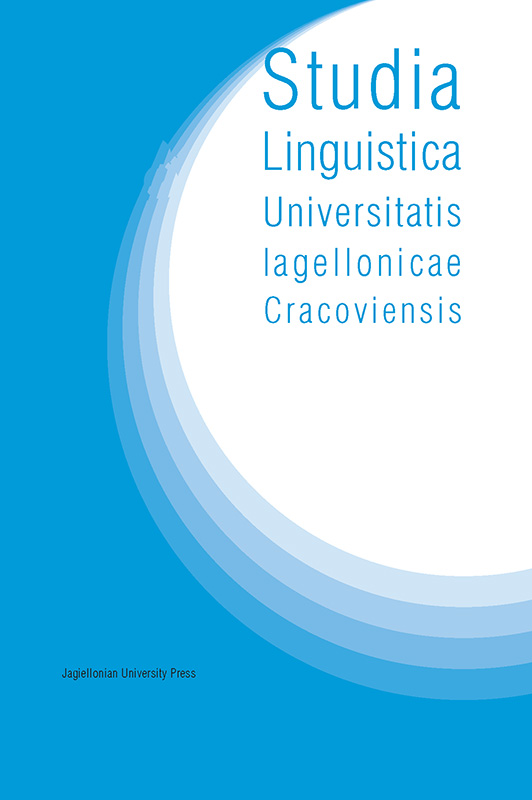Grammaticalization paths and chaos: Determinism and unpredictability of the semantic development of verbal constructions (part 2 – chaos in linguistics)
Grammaticalization paths and chaos: Determinism and unpredictability of the semantic development of verbal constructions (part 2 – chaos in linguistics)
Author(s): Alexander AndrasonSubject(s): Morphology, Semantics, Cognitive linguistics
Published by: Wydawnictwo Uniwersytetu Jagiellońskiego
Keywords: grammaticalization paths; verbal semantics; Chaos Theory; Cognitive Linguistics; semantic maps;
Summary/Abstract: This paper demonstrates that by applying Chaos Theory to the modelling of the evolution of verbal forms and verbal systems, it is possible to view classical grammaticalization paths as universal, and align this deterministic assumption with the unpredictability of concrete grammatical developments. The author argues that such an explanation is possible because traditional grammaticalization paths do not represent realistic cases of grammatical evolutions, but rather correspond to abstract and non-realistic deterministic laws which codify the order of the incorporation of new meanings to the semantic potential of a gram. Therefore, from a synchronic perspective, they can be used to represent the semantic potential of a form as a map or a state. In contrast, a realistic development emerges as a trajectory connecting such maps or states. Consequently, the cross-linguistic typological model of realistic evolutionary processes of a certain type corresponds to a state-space – it is a cluster of all possible trajectories the grams of a certain class can travel. This article – the second of series of three papers – will deal with a principled application of Chaos Theory to linguistics and with a new alternative interpretation of paths postulated by Path Theory.
Journal: Studia Linguistica Universitatis Iagellonicae Cracoviensis
- Issue Year: 133/2016
- Issue No: 4
- Page Range: 319-335
- Page Count: 17
- Language: English

